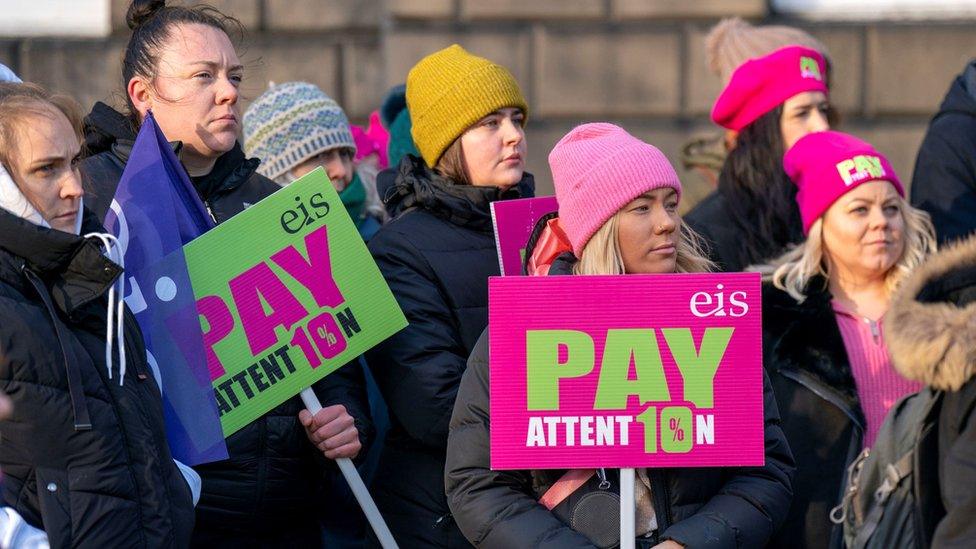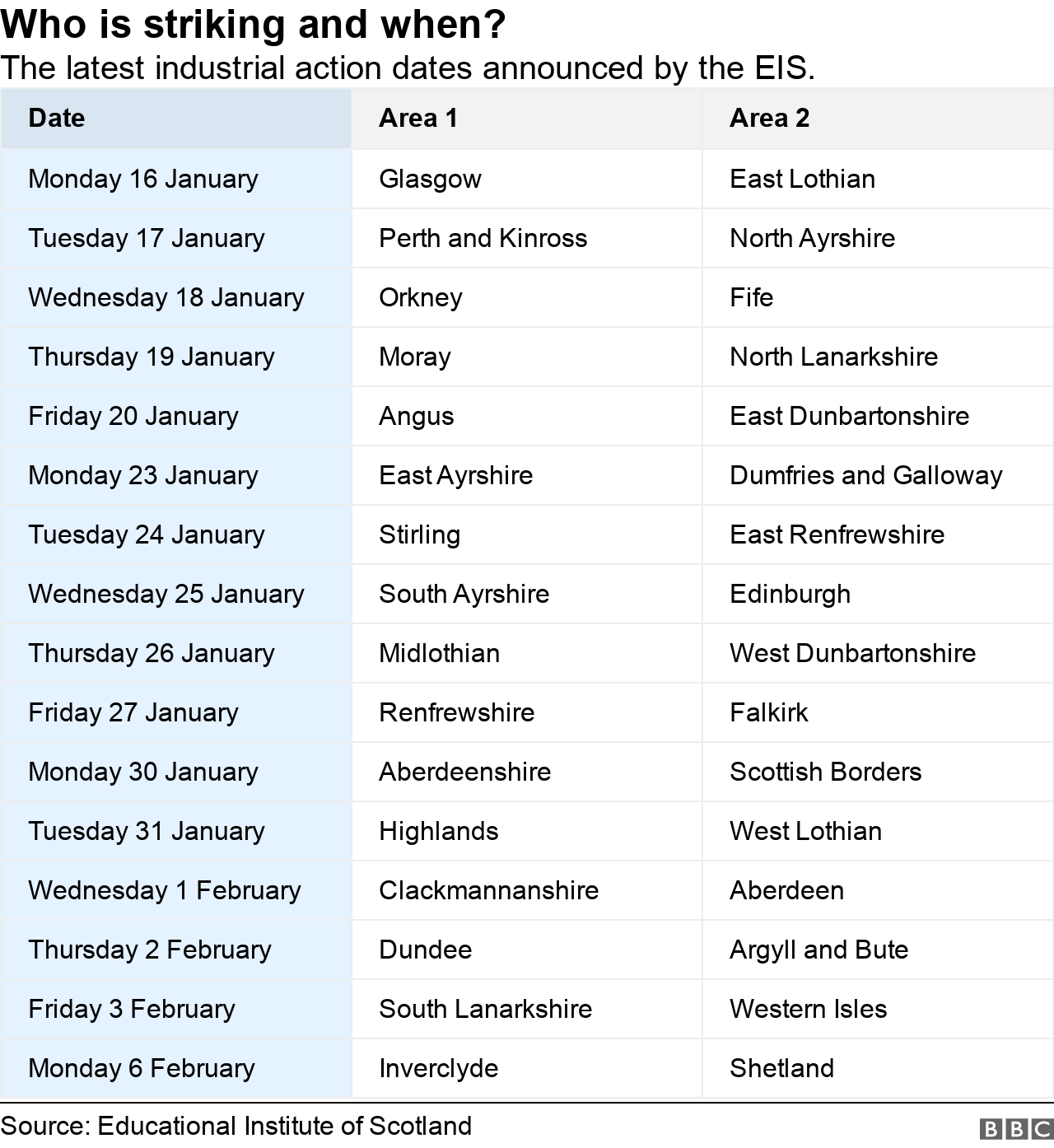Scottish teacher strikes to go ahead after offer deadline passes
- Published

Members of the EIS union have been campaigning for a 10% pay rise
Teacher strikes will go ahead in Scotland on Monday after a deadline passed for a new pay offer to be made.
The Educational Institute of Scotland (EIS) said an improved deal was needed to prevent planned action going ahead.
Unions, councils and the Scottish government met on Thursday afternoon but no new offer was tabled.
Teaching unions have rejected a 5% pay increase, arguing for 10%. The latest offer includes rises of up to 6.85% for the lowest-paid staff.
The Scottish government and councils have said a 10% rise is unaffordable and the education secretary urged teaching unions to reconsider their plans for industrial action.
A fresh round of strikes will begin on Monday.
Any new deal would need to be agreed by all 32 council leaders. They are currently not due to meet for two weeks.
Earlier this week all four unions representing teachers and headteachers walked out together for the first time.
It involved members of the EIS, Scotland's largest teaching union, the NASUWT, Scottish Secondary Teachers' Association (SSTA) and the Association of Headteachers and Deputes (AHDS) unions.
The EIS said it was "disappointed" and its national executive committee would meet on Friday to consider next steps.
General secretary Andrea Bradley said: "Despite their warm words over the past week, the Scottish government and Cosla have again failed to come to the table with a new pay offer to Scotland's teachers.
"Our members are not prepared to accept the repeatedly reheated sub-inflationary offer that has now been sitting around for six months, and that is neither fair nor affordable for teachers.
"In the absence of an improved offer, our members will continue with strike action from Monday of next week, in their struggle for fair pay."

Education Secretary Shirley-Anne Somerville said meetings which took place this week had provided "a crucial opportunity" to further discuss potential areas for agreement.
She said: "There is a shared understanding that these latest talks are focused on examining options for compromise, rather than tabling a new offer at this time.
"While talks are ongoing, the Scottish government continues to urge the teaching unions to reconsider their plans for industrial action.
"Strikes in our schools are in no one's interest - including for pupils, parents and carers who have already had to deal with significant disruption over the past three years.
"We remain absolutely committed to a fair and sustainable pay deal."
Local authority group Cosla it was there continued to be in proactive discussions.
Cosla spokesperson, Councillor Katie Hagmann, said "Strikes in education are in nobody's interest.
"All parties are eager to seek a resolution that not only protects the teaching and wider local government workforce, but also our children and young people's educational experience."
However she reiterated that the 10% pay rise asked for by unions remained unaffordable.
Without movement on an offer, a 16-day programme of regional strikes will begin on Monday.
Schools in Glasgow and East Lothian will be targeted on the first day of the campaign with strike action then continuing on a rolling basis within two authorities each day.
It follows strikes this week that closed almost every primary school in Scotland on Tuesday, and every secondary school on Wednesday.
Preliminary exams due to take place had to be rescheduled for some pupils.


It was a great disappointment to the teachers unions that no new pay offer was put to them today. But it was, probably, no great surprise.
It had become apparent that the gulf between what the unions want and what council and the Scottish government say they can afford remains wide.
Any new pay offer would need to be agreed by Scotland's 32 council leaders before it could be formalised.
Their next meeting is not due for another fortnight.
The unions will be hopeful the new offer will come before then. But will that new offer, when it comes, be enough to lead to the suspension of strikes and even settle the dispute?